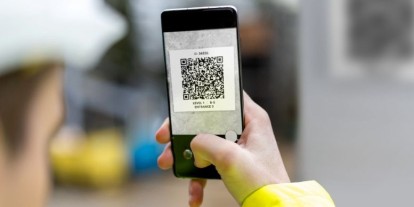Blog / Disruptive Technologies
Women in Tech: 7 Amazing Pioneers you may not have heard about
Categories
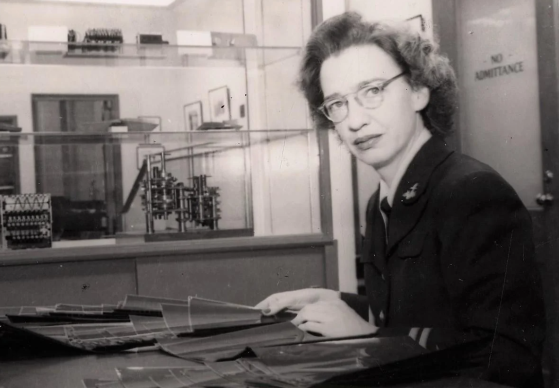
You've probably heard of Steve Jobs and Bill Gates, but have you heard of the women in tech who paved the way for them? In this article, we'll introduce you to seven hidden figures of tech history. From groundbreaking programming pioneers to accessibility advocates, these famous women in technology have broken barriers and shattered stereotypes to make their mark on the world. Understand their stories, their achievements, and their lasting legacies. Because learning about women in technology history is key to bridge the gender gap that is still present in the STEM sector.
1. Ada Lovelace The world's first computer programmer
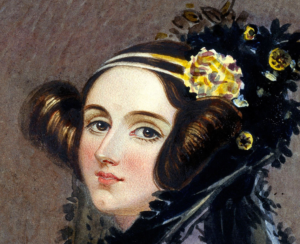
Ada Lovelace, born in 1815 in the UK, was a pioneering mathematician and writer who is credited with creating the first computer program. The only legitimate child of the poet Lord Byron, she is best known for her work on Charles Babbage's Analytical Engine, an early mechanical computer, considered the first published algorithm intended for implementation on a computer.
Her mother, Lady Byron, was determined to provide Ada with a strong education in mathematics and science, which was unusual for a woman in the early 19th century. Going past this cultural obstacles, as you will see, is a common trait of all these women in tech.
Her contributions to computer science were not fully recognized until the 1950s, but her insights and ideas paved the way for modern computing and helped shape the digital world as we know it today. She was a visionary thinker who predicted the potential of computers to go beyond mere calculation. She wrote, "The Analytical Engine has no pretensions whatsoever to originate anything". Every year, since 2009, the second Tuesday of October is celebrated as International Ada Lovelace Day, a date intended to commemorate the achievements of women in fields such as technology, science, engineering and mathematics.
2. Jean Bartik Programmed the first general-purpose computer
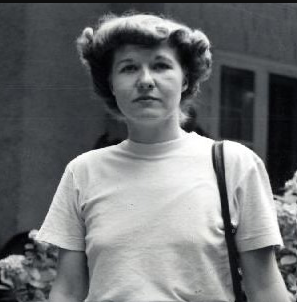
Jean Bartik was an American computer programmer and one of the original programmers of the ENIAC, the world's first general-purpose electronic digital computer. During World War II, she was recruited to work on the highly secretive project to develop the ENIAC, where she and her fellow programmers programmed the machine using numerical tables and complex wiring diagrams.
Bartik went on to make significant contributions to the development of early computer programming languages, including being the lead programmer on BINAC and UNIVAC, two early commercial computers. Jean was one of the first women to earn a degree in mathematics from the University of Missouri in 1945. Interesting fact: Bartik and her colleagues who programmed the ENIAC were initially referred to as "computers" rather than programmers, as the term "programmer" had not yet been coined!
3. Elizabeth Feinler Creator of the first Internet address system
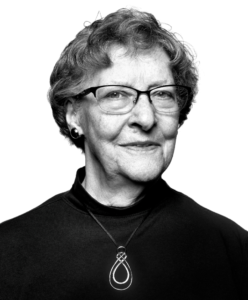
Elizabeth Feinler was an American computer scientist who made significant contributions to the development of the early Internet. She is best known for creating the first domain name system (DNS) and the first directory of networked computers, which played a crucial role in the development of the Internet as we know it today.
Feinler's team at SRI International, where she worked, was responsible for assigning the first domain names on the Internet, including .com, .org, .edu, and .gov. Feinler was also involved in the creation of the first electronic mail (email) protocol, which enabled users to send messages across different computer networks.
In addition, Feinler was instrumental in the creation of the Network Information Center (NIC), which provided support and guidance for users of the Internet and helped establish the Internet as a mainstream tool for communication and information sharing. In recognition of her contributions to the development of the Internet, Feinler was inducted into the Internet Hall of Fame in 2014. As you will see, many of these amazing women in tech have received numerous recognitions worldwide!
4. Radia Perlman Inventor of the Spanning Tree Protocol (STP)
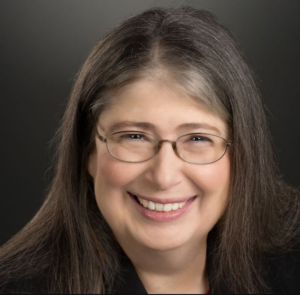
Radia is best known for her invention of the spanning tree protocol (STP), which revolutionized the way that data is transmitted through networks and made large-scale computer networks more reliable and efficient. Perlman's work also included the creation of other networking protocols, such as the Transparent Interconnection of Lots of Links (TRILL) and the Protocol Independent Multicast (PIM), as well as significant contributions to the development of network security protocols.
Her work has been essential in shaping modern computer networking and security, and she is considered one of the most important figures in the field. Perlman is often referred to as the "Mother of the Internet" for her contributions to the development of computer networking. In addition to her work in computer networking, Perlman is also a prolific author of children's books and has written over 20 books on topics such as math, science, and technology. She has been an advocate for diversity and inclusion in the tech industry, and has spoken out about the need for more women in tech and underrepresented minorities in technology fields.
5. Sister Mary Kenneth Keller Pioneer of computer science education Developer of the BASIC programming language
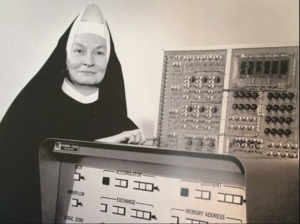
Sister Mary Kenneth Keller was an American nun and computer scientist who is best known for being one of the first women to earn a PhD in computer science, and for her work in developing the BASIC programming language, which helped make computer programming more accessible to a wider audience.
Sister Mary also played a crucial role in the development of computer science education, and was a strong advocate for the inclusion of computer science in academic curriculums. In fact, she was instrumental in establishing the first computer science department at a Catholic women's college, Clarke University in Dubuque, Iowa, where she taught for over 20 years. She was not only a pioneering computer scientist, but she was also a member of the Sisters of Charity of the Blessed Virgin Mary (BVM), a Catholic religious order. In fact, she was one of the first BVM sisters to pursue a career in science, and her work in computer science was seen as a way to connect her faith and her scientific interests.
Her pioneering work in the field of computer science helped pave the way for more women and underrepresented minorities to enter the field, and her contributions continue to impact computer science education today. In recognition of her contributions to the field of computer science and education, Sister Mary Kenneth Keller was inducted into the Women in Technology International Hall of Fame in 1996, and was posthumously inducted into the Internet Hall of Fame in 2018.
6. Hedy Lamarr Co-inventor of frequency-hopping technology (adapted for use in modern Wi-Fi)
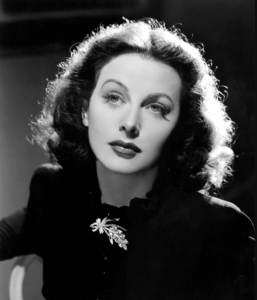
Hedy Lamarr was an Austrian-American actress and inventor who made significant contributions to the field of wireless communications. During World War II, she worked with composer George Antheil to develop a secret communication system that used frequency-hopping technology to prevent radio-controlled torpedoes from being jammed.
While their invention was not used during the war, it paved the way for the development of modern technologies such as Wi-Fi, Bluetooth, and GPS. Lamarr was fluent in multiple languages, including German, French, and English, and used her language skills to translate classified military documents during World War II. She was married six times and had three children. In addition to her work as an inventor and actress, Lamarr was also a talented pianist and composer, and even wrote a book on the subject of musically interpreting the compositions of others.
She was also the first woman to simulate an orgasm in a mainstream film, causing a major scandal at the time. Despite her scientific achievements, Hedy Lamarr faced challenges in being taken seriously as an inventor due to her status as a Hollywood starlet. However, in recent years, her contributions to the field of technology have been recognized and celebrated, and she is remembered as both a talented actress and a bright inventor.
7. Chieko Asakawa Developer of web accessibility technologies
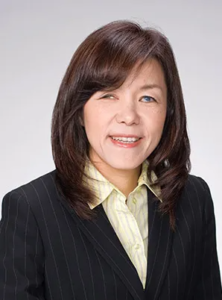
Chieko Asakawa is a Japanese computer scientist and accessibility advocate. Blind since the age of 14, Asakawa was inspired to pursue a career in computer science after discovering that computers could help her overcome the challenges she faced as a blind person.
She is best known for developing the Home Page Reader, the world's first practical voice browser, which allowed blind and visually impaired users to navigate the internet using spoken commands.
Asakawa's work in web accessibility has had a profound impact on the lives of people with disabilities, and she has received numerous awards and honors for her contributions to the field of computer science, including: the IBM Fellow, IBM's highest technical honor, in 2009; Person of Cultural Merit, awarded by the Japanese government, in 2013; Association for Computing Machinery (ACM) SIGACCESS Award for Outstanding Contributions to Computing and Accessibility, in 2015; Fellow of the Royal Society of Edinburgh, in 2016; Inductee into the Internet Hall of Fame, in 2019; and the IEEE Computer Society Computer Pioneer Award, in 2021. She was one of the first blind students to study computer science at Tsukuba University in Japan. In addition to her work in computer science, Asakawa is an accomplished pianist, and has performed in numerous concerts and recitals.
These women in tech have shattered glass ceilings and broken down barriers, and their contributions continue to impact our daily lives. They are proof that innovation knows no gender, and that the future of tech is bright with diverse perspectives and experiences. It's true: the percentage of women in technology is still low comparted to male statistics, but with education and proper incentives, we can make necessary progress. So, the next time you're using your smartphone or browsing the web, take a moment to appreciate the incredible women in tech who helped make it all possible!
Embrace technology and innovate your business with our MBA
Learn how an MBA in Digital Transformation can empower you to be the next disruptor in the field! Who knows? If you're a woman, this may be a way to take part of the increasing list of women in tech who are leaving their mark on the industry! Our programme we’ll teach you adopt an integrated multi sectoral approach to master digital transformation in different industries and identify trends and tendencies relevant to your business.




